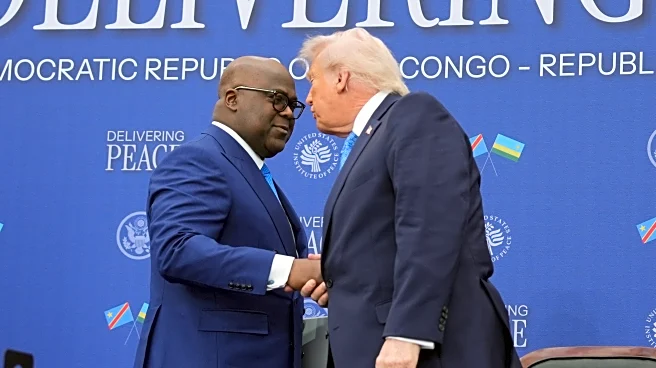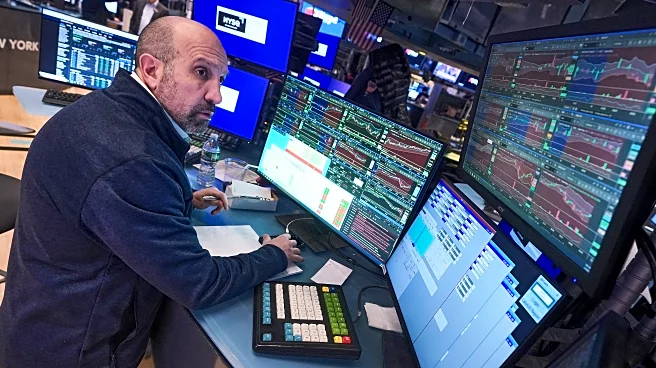What's Happening?
Lizzie Borden, the director of the 1983 feminist film 'Born in Flames,' reflects on the film's relevance and her experiences in Hollywood, particularly with Harvey Weinstein. 'Born in Flames' is set in a dystopian future following a peaceful Social Democratic revolution, yet societal issues like gender inequality persist. The film, which features radical radio stations run by women, has gained recognition over the years and is now being released by the Criterion Collection. Borden discusses the challenges she faced in mainstream filmmaking, including her interactions with Weinstein, who she claims negatively impacted her career by labeling her difficult to work with. Despite these setbacks, Borden continues to work on film projects, emphasizing the importance of including diverse voices in her work.
Why It's Important?
The re-release of 'Born in Flames' highlights ongoing discussions about gender equality and representation in the film industry. Borden's experiences with Weinstein underscore the systemic issues faced by women filmmakers, particularly in the 1980s and 1990s. The film's themes remain relevant as societal debates about women's rights and freedoms continue. Borden's story is a reminder of the barriers women face in achieving equal representation and the importance of supporting diverse voices in the arts. The Criterion Collection's release provides an opportunity for new audiences to engage with the film's message and reflect on its implications in today's context.
What's Next?
The Criterion Collection's release of 'Born in Flames' will likely spark renewed interest in Borden's work and discussions about gender equality in the film industry. As audiences revisit the film, there may be increased dialogue about the historical and current challenges faced by women filmmakers. Borden's ongoing projects could gain attention, potentially leading to new opportunities for her to share her unique perspective. The film's release may also inspire other filmmakers to explore similar themes and contribute to the broader conversation about representation and diversity in cinema.
Beyond the Headlines
The film's exploration of feminist themes and its inclusion of diverse voices offer a deeper understanding of the cultural and political landscape of the time. Borden's approach to filmmaking, influenced by the art world and political activism, challenges traditional narratives and encourages viewers to consider the complexities of social movements. The film's historical context and its prescient themes provide a lens through which to examine current societal issues, offering insights into the ongoing struggle for equality and justice.










